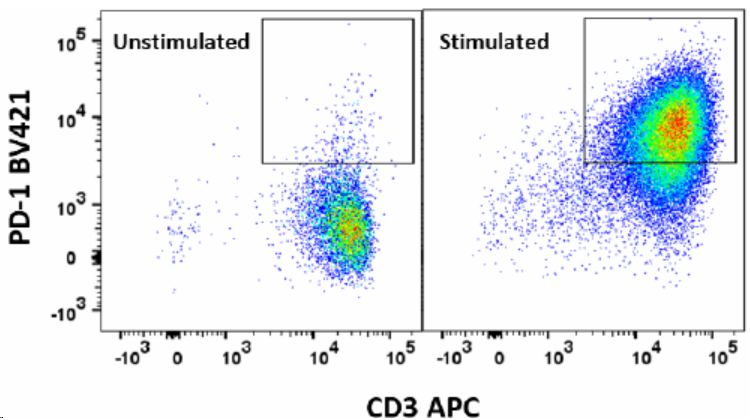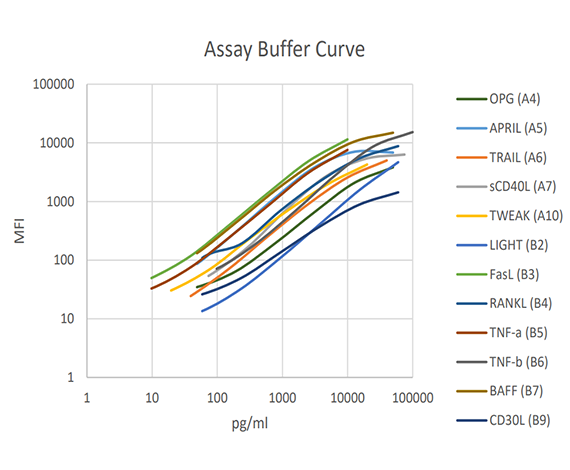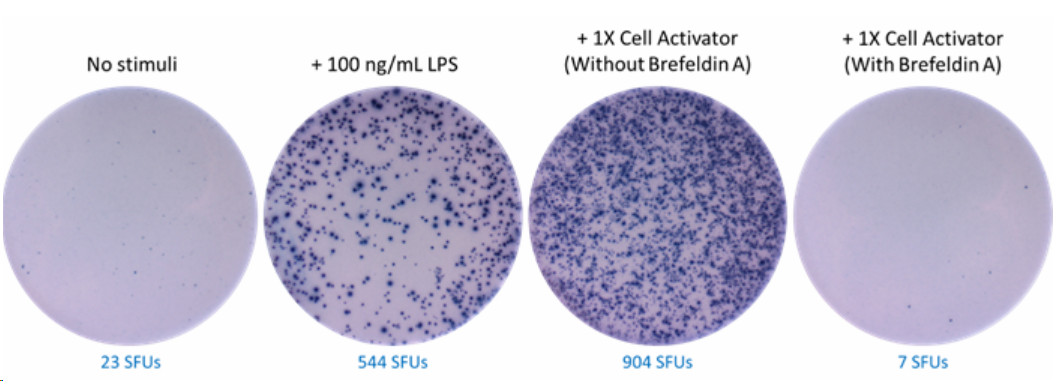Unlocking immuno-oncology with cancer immunotherapy
The immune system's role in cancer
Immuno-oncology research is a rapidly evolving field that focuses on harnessing the body's immune system to fight cancer. This approach involves understanding how tumors evade immune detection and developing therapies that enhance the immune response against cancer cells. Key strategies include immune checkpoint inhibitors, which block proteins that prevent immune cells from attacking cancer, and CAR-T cell therapy, which involves engineering a patient's T cells to better recognize and destroy cancer cells. Immunotherapies empower immune cells to recognize and eliminate cancer, and this dynamic field holds immense promise for a wide variety of cancers.
Immune checkpoints, bispecific antibodies, and CAR-T cells
Checkpoint inhibitors are a key class of immunotherapies. They block inhibitory signals that cancer cells exploit to evade immune detection. We offer a comprehensive range of immune checkpoint proteins and antibodies, including PD-1, CTLA-4, and TIM-3.
While checkpoint inhibitors are a demonstrated application in cancer treatment, bispecific antibodies and CAR-T cell therapies are equally transformative. Bispecific antibodies are a cutting-edge form of immunotherapy that can bind to two different antigens simultaneously, enhancing the immune system's ability to target and eliminate cancer cells. Bispecific antibodies engage both tumor cells and immune effectors, enhancing tumor clearance. These antibodies are particularly promising in the treatment of hematologic cancers and are being explored for their efficacy in solid tumors. CAR-T cells, on the other hand, are genetically engineered to express chimeric antigen receptors to directly target cancer cells. Our portfolio includes reagents for CAR-T research and bioprocessing, driving innovation in personalized medicine.
For more information on our tools and reagents that support your CAR-T research workflow, download our infographic.
Quality reagents for immuno-oncology research
Breakthroughs depend on reliable tools. Our immuno-oncology reagents, such as recombinant proteins and antibodies, undergo rigorous quality testing, ensuring bioactivity and reproducibility. Explore our extensive selection of Ultra-LEAF™ and GoInVivo™ antibodies, bioactive recombinant proteins, cytokines, and growth factors. Additionally, our Cell-Vive™ reagents, free of animal-derived components, optimize cell bioprocessing for consistent results.
Human CD3/CD28 T Cell Activation Beads allow for convenient in vitro activation of human T cells without the need for antigen-presenting cells. Human T cells are stimulated with anti-CD3 and anti-CD28 antibodies coated on superparamagnetic microbeads. Beads are added directly to isolated T cells or to PBMCs for robust T cell activation.

PD-1 expression at day 5 of culture of human CD3+ T cells stimulated with Human CD3/CD28 T Cell Activation Beads. At day of harvest, cells were stained with anti-human CD3 (clone SK7) APC and anti-human CD279 (PD-1) (clone NAT105) Brilliant Violet 421™ and were analyzed by flow cytometry. Cell debris, dead cells, and doublets were excluded from analysis.
Immunoassays for TNF superfamily
The Tumor Necrosis Factor Superfamily (TNFSF) pathway plays a crucial role in regulating immune responses, inflammation, and cell death. This pathway involves various TNFSF ligands and receptors that mediate signaling processes essential for immune cell activation, differentiation, and apoptosis. Dysregulation of TNFSF signaling is implicated in numerous diseases, including cancer, autoimmune disorders, and chronic inflammatory conditions. Understanding the intricacies of this pathway can provide insights into disease mechanisms and aid in the development of targeted therapies.
LEGENDplex™ is a flow cytometry-based immunoassay used for simultaneous quantification of human inflammatory cytokines and chemokines. It allows researchers to measure up to 14 different proteins and cytokines. Our LEGENDplex Human TNFSF panel is designed to quantitate 12 TNFSF ligands, including TNF-α, TNF-β, OPG, APRIL, sCD40L, and BAFF. This multiplex assay aids in understanding immune responses and inflammatory processes.

This standard curve was generated using the LEGENDplex Mouse TNFSF Panel for demonstration purposes only. A standard curve must be run with each assay.
For more detailed information on the principles of cytokine measurement, you can watch our LEGENDplex video. Additionally, if you're interested in starting an experiment, see our peer-reviewed video published with the Journal of Visualized Experiments (JoVE) that covers the entire experimental workflow.
Our LEGEND MAX™ High Sensitivity ELISA Kits are fully validated and available in ready-to-use formats. Detect and measure Human IL-6, IL-8, TNF-α, and other cytokines in biologically relevant samples and in concentrations as low as 0.3 pg/mL.
Our ELISpot MAX™ Deluxe Set for Human TNF-α is designed for the detection of TNF-α secreting cells, providing a robust method to quantify cytokine production at the single-cell level. The kit includes pre-optimized reagents and buffers for performing enzyme-linked immunospot assays, allowing researchers to visualize and count individual cells secreting TNF-α. This tool is invaluable for studying immune responses and the role of TNF-α in various pathological conditions.

Human peripheral blood mononuclear cells (PBMC) at 104 cells/well were incubated for 20 hours in the absence or presence of either 100 ng/mL LPS (lipopolysaccharide), 1X Cell Activator without Brefeldin A, or 1X Cell Activator with Brefeldin A. Cell Activator cocktail contains PMA and ionomycin at the optimized concentration. Brefeldin A functions to inhibit intracellular protein transport and inhibit secretion of cytokines such as TNF-α.
Revvity also provides innovative solutions for cancer research and therapeutic applications. Their offerings include advanced cell counters like the Cellometer™ Ascend™, which facilitates accurate and efficient cell counting, and the Pin-point™ base editing platform for precise genetic modifications.
Additionally, Revvity's multimode plate readers and cytokine detection kits are essential for high-throughput screening and analysis of immune responses. These tools help researchers accelerate the development of new cancer therapies by providing reliable and reproducible data.
Custom solutions for immuno-oncology research
As researchers unravel the complexities of cancer and the intricacies of the immune systems relationship with the tumor network, collaboration is paramount. We provide custom reagents developed with your research in mind, providing researchers with versatile tools for cancer immunotherapy studies, like recombinant bispecific antibodies to target multiple specific antigens.
Our commitment to cancer research extends beyond reagents. Visit our cancer research hub for educational content, webinars, and insights into the latest discoveries.
*For research use only, not intended for diagnostic purposes*
References
- Vanamee, ES, Faustman, DL. “Structural principles of tumor necrosis factor superfamily signaling.” Sci. Signal, vol. 11, 2018, doi:10.1126/scisignal.aao4910. Pubmed.
- Ababneh, O, et al. “Tumor Necrosis Factor Superfamily Signaling: Life and Death in Cancer.” Cancer and Metastasis Reviews, vol. 43, no. 4, 2024, doi:10.1007/s10555-024-10206-6. Pubmed.

 Login / Register
Login / Register 






Follow Us